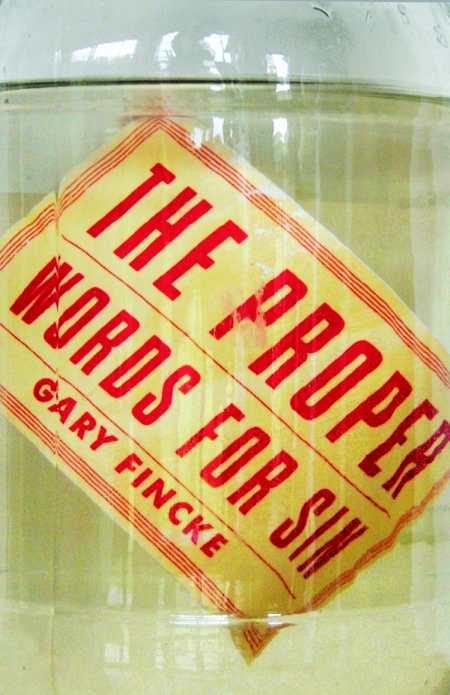The Proper Words for Sin
Characters grope for meaning amid emotional and moral crises in complex, atmospheric stories.
The lives of boys and men are fraught with imperfection and shortcomings in our intensely competitive culture. For the mostly male, mainly working-class protagonists who populate Gary Fincke’s short-fiction collection, The Proper Words for Sin, coming of age means coming to terms with lives marked equally by hope and disappointment.
In complex, atmospheric stories, Fincke’s characters grope for meaning in the face of tragic incidents such as John F. Kennedy’s assassination or the in-flight disintegration of the space shuttle Challenger. He subtly connects the sense of disorder and unraveling that these events inspire with his characters’ emotional and moral predicaments. Set against a backdrop of small-town and rural Pennsylvania, Fincke examines the intersection between geopolitical crises and equally life-changing interpersonal ones.
In “The Fierceness of Need,” Ed witnesses his neighbor Sal’s attractive daughter Maria getting thinner and thinner, in the shadow of the partial nuclear meltdown at Three Mile Island. Meanwhile, Ed’s wife, Dana, abandons him to seek a safe haven for their unborn first child. In bed alone, Ed experiences profound loneliness, pressing “his lips together to keep from whimpering out loud like an old dog.” This story introduces signature themes that recur throughout the collection—troubled domestic relations, intrigue between neighbors, intergenerational arousal, and the looming threat of disasters large and small.
Fincke, author of twenty-four previous books of poetry, nonfiction, and short stories, repeatedly interrogates the notion of manhood. Twelve-year-old Georgie is begrudgingly accepted by his neighbor Bud, a moody Korean War vet, in “Weepers.” Georgie spends summer afternoons listening to old crooner records with Bud’s voluptuous wife, June, who allows him sips from her bourbon as she sunbathes in the yard. While sullen Bud stays indoors trying to forget combat, horny Georgie wonders how he measures up to the tough, cursing boys from a nearby poorer neighborhood who gather to peep as June lounges in her bathing suit.
One man’s urge to pummel another in a bar fight becomes an existential cri de coeur in “The Promise of Labels.” Rick is so inflamed by a young punk’s disrespect for women that he’s compelled to beat him up, getting him banned from his favorite watering hole. The prose draws the reader in so effectively that even a pacifist would cheer Rick on. Fincke’s writing is at once contemplative and vivid. In his hands, the examined life is not just worth living—it’s definitely worth reading about.
Reviewed by
Shawn Syms
Disclosure: This article is not an endorsement, but a review. The publisher of this book provided free copies of the book to have their book reviewed by a professional reviewer. No fee was paid by the publisher for this review. Foreword Reviews only recommends books that we love. Foreword Magazine, Inc. is disclosing this in accordance with the Federal Trade Commission’s 16 CFR, Part 255.

